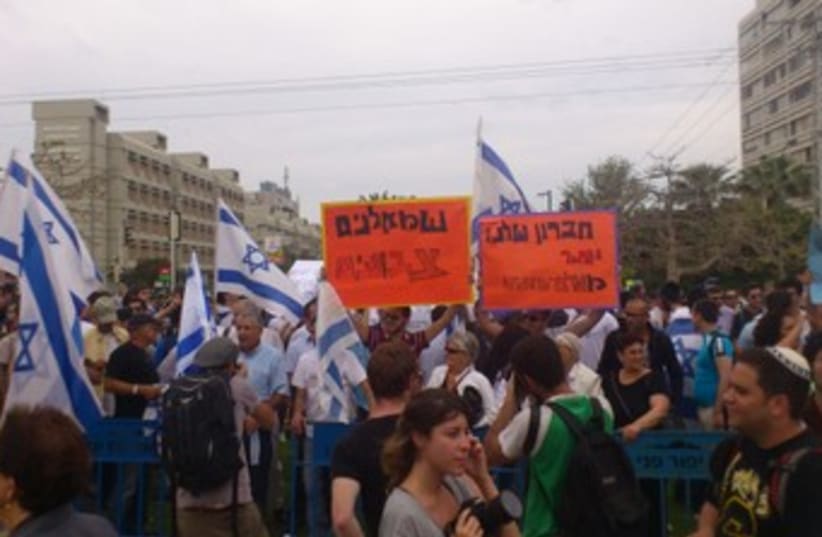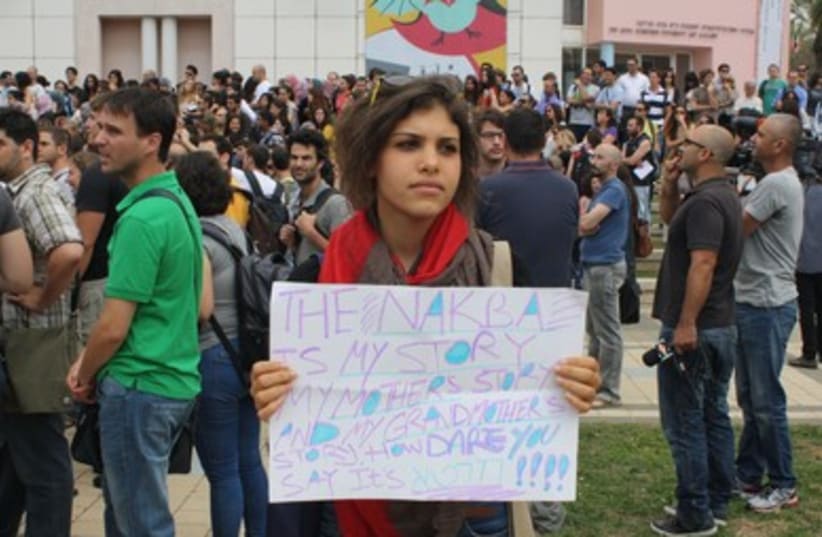
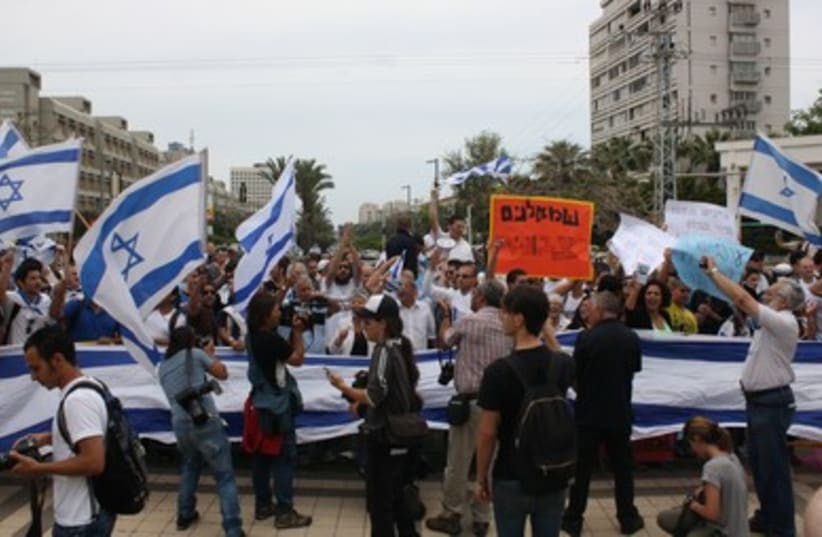
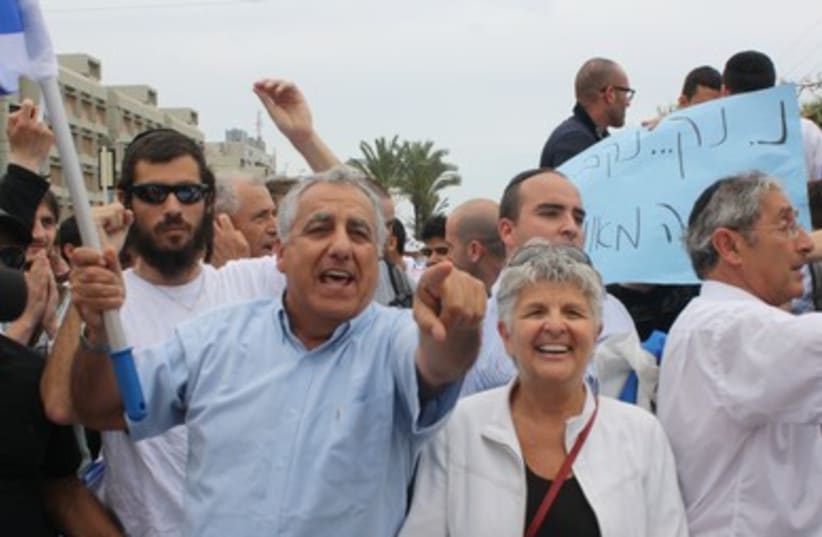
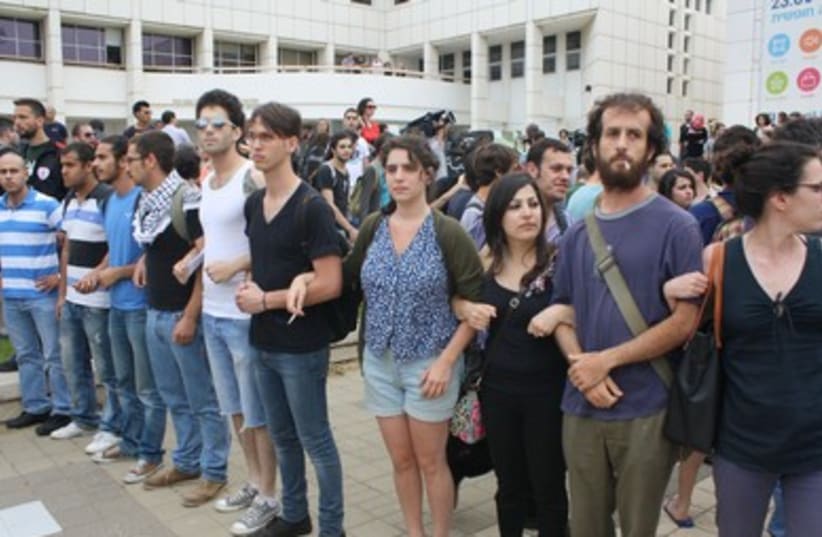
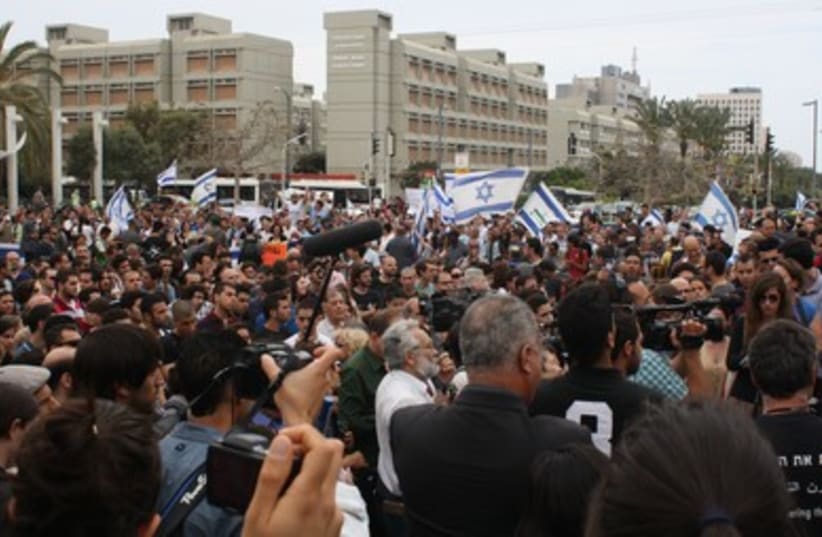
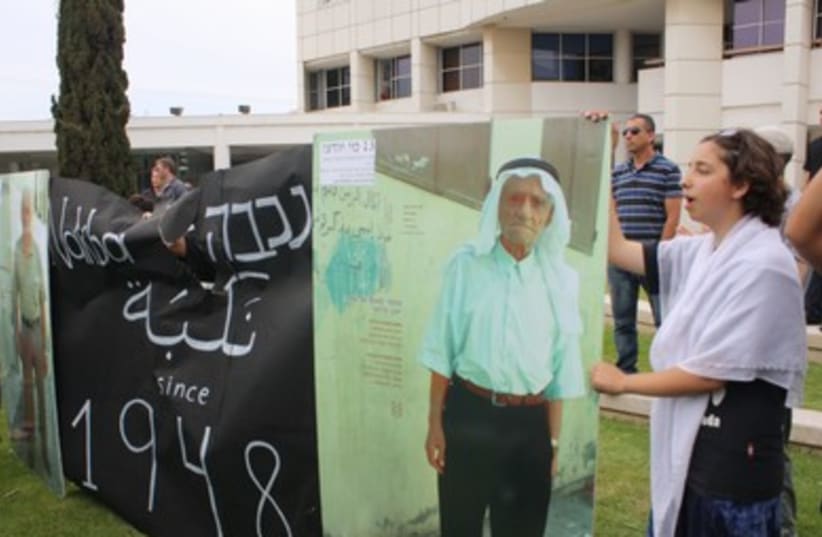

The crowd was more or less split between those attending the memorial and a particularly raucous crowd of counter-demonstrators waving Israeli flags, singing the national anthem, honking horns and drowning out the memorial ceremony, with some protesters occasionally chanting “Havenu Nakba Alechem” (“We brought a Nakba upon you”).The memorial was the source of a significant amount of controversy, with Education Minister Gideon Sa’ar calling on the university to reconsider the decision to allow it, which he called “mistaken and outrageous.”In the end, the university approved the memorial, which took place one day before Nakba Day, traditionally held on May 15, but stipulated that students must pay for their own security and could not use amplified speakers.Though one organizer said the university required that they pay around NIS 1,000 for security, there was also a heavy contingent of Border Police and Israel Police officers on the scene. In addition, the counter-protesters were able to use a speaker system.Police said that two people were detained during the event for disturbing the peace.MK Michael Ben-Ari (National Union) said he and others came to protest against the memorial event to “restore a bit of sanity” to the Israeli public. Ben-Ari added that there is no reason for Israelis to listen to the Palestinian narrative about the Nakba, because “it’s not a narrative, it’s a lie. What if they’d won the war? We’d have had another Holocaust here.”Another counter-protester, Bar-Ilan University student Lilach Aviv, 25, held up a sign that said “Israeli Arabs say no to the Nakba.”“They should do this in Ramallah or Gaza, instead they exploit our democracy to spit in our faces,” Aviv said.Past the police barricades and officers keeping back the counter-protesters, journalists and photographers, a few hundred students listened as speakers told stories passed down from their grandparents about the war and villages lost or left behind during and after the War of Independence.Waseem Hajo, a 25-year-old native of Haifa, said he came to the memorial event because his family lost around 300 dunams of land in the North, after they fled their village during the war. He added that the loss of his family’s land meant he and his parents experienced a life in poverty.“This was my family’s personal tragedy. We’re not here to cancel Israel’s existence, we just want them to recognize our suffering,” Najo said, before pointing to the counter- protesters and saying, “All we want is to raise awareness of the Nakba, and these people are doing our job for us.”
